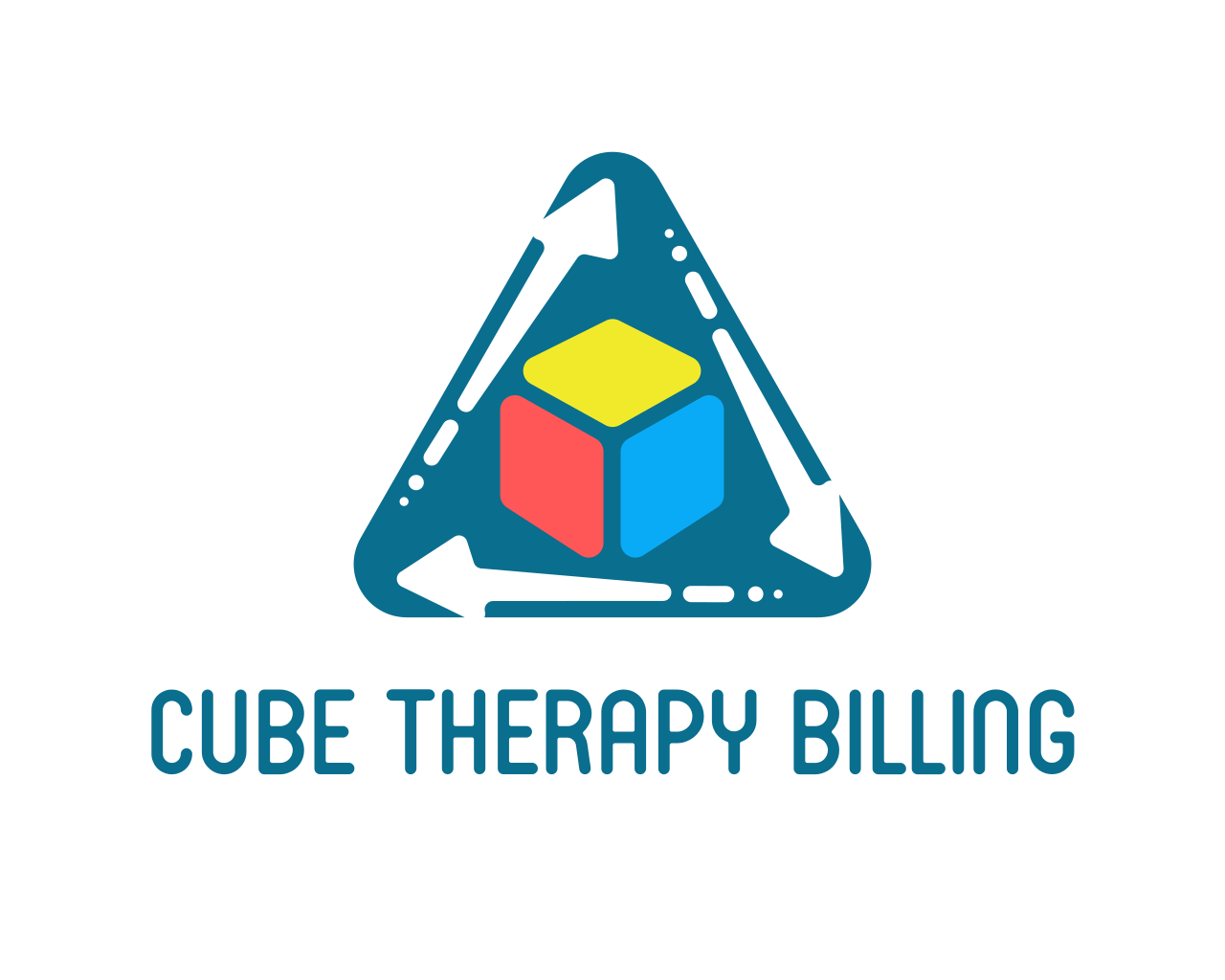HIPAA Compliance for ABA Providers: A Practical Checklist for Documentation, Software, and Billing
- Veronica Cruz

- Jul 3, 2025
- 7 min read
Updated: 5 days ago

If you work in ABA, you know you handle some of the most sensitive health information out there. Everything from session notes and behavior data to treatment plans and billing records is considered Protected Health Information (PHI).
When most people look up "HIPAA for ABA," they usually just want the answer to one big question:
"How do I keep my clients' data safe without completely bogging down my clinic's workflow?"
This guide cuts through the legal jargon and breaks HIPAA down into practical, everyday steps. Here is what you'll get out of it:
A simple, realistic HIPAA compliance checklist for therapists.
Straightforward advice on choosing the right HIPAA-compliant tools for your documentation, software, onboarding, and billing.
What is HIPAA compliance?
HIPAA compliance is the federal law that governs how protected health information (PHI) needs to be handled, stored, shared, and protected. If you're running an ABA clinic, HIPAA applies to you because you're a healthcare provider. And honestly, most ABA practices are already billing insurance or sharing PHI with payers and clinical partners, so there's really no way around it.
But here's the thing, HIPAA compliance isn't just about staying out of trouble or avoiding fines. It's about maintaining the trust your clients and families place in you, and keeping a very preventable mess from happening in the first place.
ABA-specific risk points include:
Daily documentation and data collection
Supervision notes and case discussions
Emailing parents and care teams
Telehealth sessions
Intake forms and client onboarding
Claims submission and payment posting
Working with billing vendors and software vendors
HIPAA Requirements ABA Providers Must Actually Follow
There are three parts that matter most in daily operations.
1. Privacy Rule (Who can see PHI and when)
You must limit access to PHI to only people who need it to do their job.
That means:
Office staff shouldn’t have access to clinical notes unless required
Supervisors must avoid unnecessary identifiers when teaching or training
Records should not be shared without proper authorization unless allowed under treatment, payment, or healthcare operations
2. Security Rule (How you protect electronic PHI)
HIPAA requires “reasonable and appropriate” safeguards for ePHI.
In practice, strong HIPAA compliance looks like:
Role-based access control
Encryption (data in transit + at rest)
Multi-factor authentication where possible
Audit logs
Secure backups
Device policies for laptops and phones
Remote access controls if staff work from home
3. Breach Notification Rule (What happens if something goes wrong)
If PHI is exposed, clinics need a plan that covers:
Containment
Investigation
Documentation
Notifications required by HIPAA
Prevention steps moving forward
Most clinics don’t fail because they had a breach. They fail because they weren’t prepared for one.
HIPAA Compliance Checklist for Therapists and ABA Clinics

Use this as a working checklist. If you check 80% of this off, you’re ahead of most small clinics.
Policies and Training
Written HIPAA policies (privacy + security)
Annual HIPAA training for all staff
Confidentiality training for interns and trainees
Clear rules for texting, emailing, and telehealth
Written sanction policy (what happens when staff violate HIPAA)
Access and Devices
Unique logins for every staff member (no shared accounts)
Strong passwords + password manager encouraged
MFA enabled for email and EMR when possible
Devices protected with passcodes and auto-lock
Clear BYOD rules (personal phones used for work)
Documentation and Data Collection
Document templates that minimize unnecessary identifiers
Secure storage for paper notes (locked, controlled access)
Secure disposal and shredding
Policies for transporting clinical documentation
Communication
HIPAA-aligned email process (encryption or secure portal)
No PHI over standard SMS text
Secure messaging when communicating internally
Signed releases before sharing PHI outside permitted uses
Vendors and Contracts
Business Associate Agreements (BAAs) in place with vendors who touch PHI
Vendor risk review (what data they store, where, and how it’s protected)
Billing and Insurance
Controlled access to billing systems
Secure payment posting workflows
Claim files stored securely
HIPAA-aligned handling of EOBs and denial records
This checklist supports your high-intent term: HIPAA compliance checklist for therapists, and it also naturally fits HIPAA compliance for counselors and HIPAA-compliant guidelines for therapists.
HIPAA-Compliant Tools for ABA Client Documentation
When you're out there searching for the right tools for ABA client documentation, you're probably asking the same question everyone else is — where do I even start, and how do I know if something is actually HIPAA-compliant? That worry is completely valid, because choosing the wrong system can put your practice and your clients at serious risk.
Here’s the thing: a tool being popular doesn’t mean it’s HIPAA-compliant.
HIPAA Compliance Criteria for Therapy Software
Use this quick criteria list when evaluating any ABA software, data collection app, scheduling tool, EMR, or billing platform.
Criteria for HIPAA compliance in therapy software:
Will they sign a BAA?
Is data encrypted at rest and in transit?
Do they offer role-based permissions?
Do they keep audit logs?
Is access protected by MFA or at least strong authentication?
Are backups encrypted and tested?
Do they have documented breach response procedures?
Can you control record retention and user access removal?
If the vendor refuses a BAA, that’s a hard stop.
This is how you naturally target:
HIPAA-compliant tools for aba client documentation
HIPAA compliance criteria for therapy software
EMR HIPAA Compliance Checklist
HIPAA-compliant aba software
HIPAA-compliant therapist billing software
HIPAA-Compliant Client Onboarding: Where Clinics Slip Up
Intake is a HIPAA weak spot because it’s usually rushed and often handled with a mix of email, PDFs, phone calls, and text.
A HIPAA-compliant client onboarding workflow should include:
Secure intake forms (portal or secure form tool)
Written consent and privacy acknowledgment
Release of information (ROI) management process
Clear policy for caregiver emails (what can and can’t be sent)
Staff scripting for phone conversations in public areas
Secure storage of intake documents
Even a small clinic can run onboarding safely if the workflow is consistent.
Medical Billing HIPAA Compliance: What ABA Clinics Should Tighten
Billing touches PHI constantly: diagnoses, dates of service, authorization details, provider details, payer communications, EOBs, and appeals.
Medical billing HIPAA compliance comes down to:
Limiting access to billing data
Securing claims files, EOBs, and export folders
Using HIPAA-compliant billing services or vendors with BAAs
Keeping denial and appeal documentation protected
Ensuring clearinghouses and billing platforms meet security expectations
Choosing HIPAA Compliance Service Providers
If you outsource billing, credentialing, or RCM, confirm:
They sign a BAA
They follow access control practices
They have secure storage and encryption
They have an incident response plan
They train staff on HIPAA regularly
That aligns directly with:
HIPAA compliance service providers
HIPAA compliance vendors
HIPAA-compliant billing services
Common HIPAA Violations ABA Clinics Should Avoid
These are the issues that show up over and over:
Discussing PHI in the waiting room
Sharing client details without a valid release
PHI in unencrypted emails
Texting PHI
Using non-compliant telehealth or scheduling tools
Throwing PHI in the trash instead of shredding
Transporting files without secure containers
Staff using personal devices with no controls
Vendors handling PHI without a BAA
One mistake doesn’t always become a disaster. Repeating the same mistake does.
How Cube Therapy Billing Supports HIPAA-Compliant ABA Practices
HIPAA compliance doesn’t stop at clinical notes. Your billing and revenue cycle workflows touch PHI every day, too. Eligibility checks, authorizations, claim submissions, payment posting, denial follow ups… it’s all PHI-adjacent, all the time.
That’s why your billing partner matters.
At Cube Therapy Billing, we treat billing data with the same care you treat clinical documentation. Denial records, EOBs, authorization files, diagnosis codes, and appeals often contain protected health information, so our workflows are built to handle that reality without shortcuts.
Here’s what HIPAA-aligned billing support looks like with us:
We work under signed Business Associate Agreements (BAAs).
System access is role-based. Only the people who need access to do their job get it.
PHI-containing files stay in secure, access-controlled environments. That includes claims files, remittance reports, and denial documentation.
Our team gets ongoing HIPAA training tailored to billing. Not generic training. Training that matches the real situations billing teams face.
We use secure communication practices with providers and payers. So PHI isn’t floating around in the wrong place.
We keep documented procedures for data protection and incident response. If something ever goes sideways, there’s a clear plan and accountability.
What this really means is simple: when billing workflows are structured the right way, HIPAA compliance becomes part of everyday operations, not a recurring risk point you worry about every month.
If you’re evaluating billing support, don’t settle for a partner who just says they’re compliant. Ask them to walk you through how they protect PHI day to day.
FAQs
Where can I find HIPAA-compliant tools for ABA client documentation?
Start by filtering vendors that will sign a BAA and meet baseline security controls like encryption, role-based access, and audit logs. If they won’t sign a BAA, move on.
How do I conduct a HIPAA compliance audit for my medical practice?
Review policies, training logs, access controls, vendor BAAs, HIPAA Compliance software security, and your breach response plan. Document gaps and set deadlines to fix them. Many clinics do this annually.
Is online patient scheduling secure and HIPAA-compliant?
It can be, but only if the scheduling vendor will sign a BAA and has appropriate security safeguards. Many common scheduling tools are not HIPAA-compliant by default.
Is Cube Therapy Billing HIPAA compliant?
Yes. Cube Therapy Billing operates under signed Business Associate Agreements (BAAs), uses secure systems with role-based access and encryption, and follows strict HIPAA policies and training. Our workflows protect PHI in claims, authorizations, EOBs, and denial management so your revenue cycle stays compliant and secure.
The Simple Takeaway
HIPAA compliance for ABA is not about perfection. It’s about building repeatable safeguards.
If your documentation tools, onboarding workflow, communication habits, and billing systems are structured correctly, HIPAA becomes part of operations instead of a constant worry.
Disclaimer
This article is for informational purposes only and does not provide legal advice. For legal guidance, consult a qualified healthcare attorney or compliance professional.



